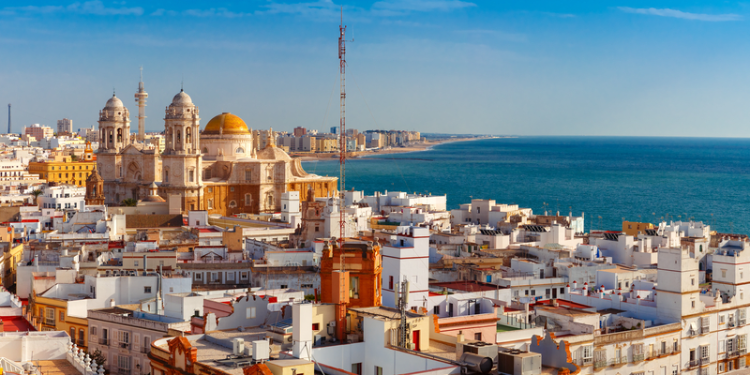
The sunny autonomous community of southern Spain, Andalusia, has scrapped the wealth tax that used to be levied on assets. It wants to attract expats and boost the economy with its tax attractiveness. Other autonomous communities, Galicia and Murcia, are following suit, while the central government plans on adopting measures that will cancel out the advantages of Andalusia's fiscal reform.
What is the ‘Impuesto sobre el Patrimonio'?
The Impuesto sobre el Patrimonio (IP), or the Spanish Net Wealth Tax, taxes an individual's assets above an exemption threshold of €700,000. The assets and rights taxable under this law are real estate (minus a person's primary residence, as long as it's not worth over €300,000), luxury objects (jewelry, art, yachts, planes), savings deposits, stocks and shares, life insurance, intellectual property rights and royalty rights.
The Impuesto sobre el Patrimonio doesn't tax high salaries, which are instead subject to income tax, known in Spain as ‘Impuesto sobre la Renta de las Personas Físicas' (IRPF). It doesn't apply to companies either – only individuals. This Net Wealth Tax has undergone some amendments over time, notably in 1992, when it was turned into law (it was previously a temporary measure), and from 2008 to 2011, when it was suspended to help deal with the 2008 financial crisis. Both citizens and non-citizens, or residents and non-residents, with assets in Spain, are subject to the tax, which means that expats are also taxed.
It should be noted that this tax is unique in the European Union. While France, Belgium and Italy also tax individuals' assets, as clarified by the newspaper 20 Minutos, they tax only selected assets (e.g., real estate) rather than the totality of all assets like in Spain. This anomaly within the EU was brought up by the President of the Autonomous Government of Andalusia, Juanma Moreno, to justify eliminating the Net Wealth Tax in his jurisdiction in 2022.
Indeed, autonomous communities have a lot of control over the exact regulations of the Net Wealth Tax (e.g., the exact rate per tax bracket) in their jurisdiction. Spain has 17 autonomous communities and 2 autonomous cities (Ceuta and Melilla in north Africa), which have a degree of independence over a wide range of matters. For example, as reported by the business newspaper Cinco Días, an individual in Catalonia, the home of Barcelona, who owns assets worth €800,000 would pay €769,51 in wealth tax in 2022, while someone with the exact same net worth in Aragon, in the north, will pay €1,164,37. The legal firm Strong Abogados clarifies that regions can also modify the general €300,000 exemption threshold for a person's primary residence – for example, in Valencia, on the southeastern coast, it is €600,000, and it is €500,000 in Catalonia.
Andalusia wants to be tax attractive for expats
The south of Spain enjoys warm, sunny weather nearly all year round and prides itself on a rich historical heritage. It has long been a favorite destination for expats, especially those from colder European climes – the UK, Germany, France, Romania, the Netherlands, and Russia. As reported by Euro News, Andalusia, the large southern autonomous region with beautiful Moorish architecture and green hills, is currently home to approximately 740,000 expats. Out of these, 88,000 are from the UK and 75,000 are from Romania.
While the major cities of Sevilla, Malaga, Cadiz and Cordoba unsurprisingly have large expat populations, it can come as a surprise that an increasing number of expats are choosing to move to small towns and villages. As reported by Idealista News, property purchase by foreigners in southern Spanish towns and villages (with less than 5000 inhabitants) has been increasing in the last few years. For example, the small Andalusian towns of Ojén and Almogía have been attracting many homebuyers from Germany, the UK and the Netherlands. So has the village of La Viñuela, also in Andalusia.
Not only is real estate more affordable in these villages and towns, but many expats also prefer tranquility to the “hustle and bustle” of big touristic cities. These towns and villages are landlocked, but they are not too far from the coast or touristic cities either – an ideal compromise. For example, a house in Almogía costs, on average, €900 per square meter, while it's €3,713 in nearby Malaga – over 300% more expensive! And indeed, as Carolina España, the economic advisor of the Andalusian government, highlights, residents of Malaga and Sevilla are the ones who pay the highest wealth tax in the region, owing to the greater value of property in these cities.
To tackle the economic blows of Covid-19, the Ukraine war and rising inflation (over 10% this year!), the Andalusian government wants to encourage this pattern of wealthy foreigners moving to their region and investing in real estate. As of 21 September 2022, the ‘Impuesto sobre el patrimonio' (Net Wealth Tax) benefits from a 100% exemption in Andalusia. This means that while the law still exists on paper, in practice, both locals and expats now have to pay zero wealth tax in Andalusia. It's the second Spanish region after Madrid with a 100% wealth tax exemption.
Critics of this measure say that it risks withdrawing precious funding from public services and the social welfare net at a time when many working-class and middle-class families need support from the state. They say that the regional government should be taxing the wealthy more – not less – during these times of economic difficulty. However, the Provincial Government of Andalusia has responded to the criticism by arguing that the wealth tax accounts for a mere 0.6% of the region's fiscal revenue and that the €360 million that will be “left in the pocket of Andalusians” from this cut will help boost local consumption, investment, job creation and economic activity in general.
The Provincial Government's President, Juanma Moreno, has explained that half of the top tax contributors of the region left in 2019. He hopes that this new tax cut will attract wealthy taxpayers to come (or return!) to Andalusia. The Andalusian government firmly believes that the ability to attract at least 7,200 additional taxpayers will offset any loss of public revenue from the elimination of the wealth tax, reports El Mundo.
Among the new homebuyers in Andalusian villages, there are more resident foreigners (i.e., expats with residence permits) than local citizens, according to the analysis that Idealista News has made of the records of the General Council of Notaries. This uptick in foreigners purchasing property must be at least partly driven by changing trends in global migration and the world of work – the Great Resignation, the boom in digital nomadism and hybrid work, the exodus of workers from certain countries/cities (e.g., Hong Kong, the United Kingdom) triggered by the cost of living, etc. The regional Andalusian government surely wants to profit as much as possible from these trends by attracting expats.
Which other autonomous communities have similar tax cuts?
As previously mentioned, Madrid is the only other autonomous community with a 100% Net Wealth Tax exemption. For the record, Madrid refers to both the capital city – Ciudad de Madrid – and the wider autonomous community – Comunidad de Madrid – that encompasses some other towns like San Lorenzo de El Escorial or San Agustín del Guadalix. The tax exemption applies to the entire community.
The autonomous community of Murcia on the southeastern coast will also eliminate the ‘Impuesto sobre el Patrimonio' in 2023, according to its provincial President López Miras. Miras lowered income tax rates in the region this year, but he says that it will be possible to reduce the wealth tax to zero only next year after his government has carefully “balanced the budget,” as reported by RTVE. Meanwhile, the autonomous community of Galicia in northwestern Spain has not completely eliminated the tax but imposed a 25% exemption on it. In 2023, this exemption will rise to 50%.
All of the four regions mentioned above which have eliminated or reduced the ‘Impuesto sobre el Patrimonio' have one thing in common – they are governed by the conservative Partido Popular (PP) party. In contrast, autonomous regions ruled by other parties are much less likely to lower taxes. For instance, the provincial President of Asturias in the north, Adrián Barbón from the Spanish Socialist Workers' Party, restated his opposition to lower taxes when Andalusia announced its reform. Barbón says that the €20 million that Asturias gets yearly from the New Wealth Tax is essential in funding social welfare policies like allowances to encourage Asturians to have children or school book deductions.
If you are an expat who wants to buy property in Spain, you should first research which autonomous regions might give you the best fiscal conditions – especially if you're going to buy a secondary (not primary) residence, which is more likely to be taxed by the ‘Impuesto sobre el Patrimonio'.
The central government disapproves of “tax competition” between regions
Before getting too excited about the fiscal reforms in Andalusia, Madrid, Murcia and Galicia, expats must bear in mind that Spain's central government largely disapproves of these measures, seeing them as an “absurd” competition for tax attractiveness, to quote the word used by the Minister of National Security, José Luis Escrivá.
Indeed, Carolina España, the economic advisor of the Andalusian provincial government, quipped that her region's fiscal reform “will make the investors of Catalonia come here.” This comment more than insinuates a desire to compete with other Spanish communities – especially the wealthiest one, Catalonia – for investors. In response, the central government is now adopting measures to centralize Spain's tax system.
The central government is ruled by a leftwing coalition whose positions about taxes are in direct conflict with those of provincial governments ruled by the center-right Partido Popular. The national Tax Minister, María Jesús Montero, says that it is unfair for some autonomous communities to get a big share of the national budget while profiting from favorable tax conditions – she wants all regions to be more or less fiscally equal.
A mere few days after Andalusia's tax cut came into force, the central government announced that, from 2023 to 2025, it would impose a temporary national wealth tax on the top 1% of the wealthiest people in Spain. Details of this measure are still in the pipeline, but it already represents a threat to the Andalusian government's fiscal goals. Among other things, the central government will have to find a way to ensure that its measure does not breach the constitutional prohibition on double taxation (if assets will be taxed by both the provincial and central governments). Expats keen on moving to Spain should keep an eye out for upcoming details concerning this new measure.



















